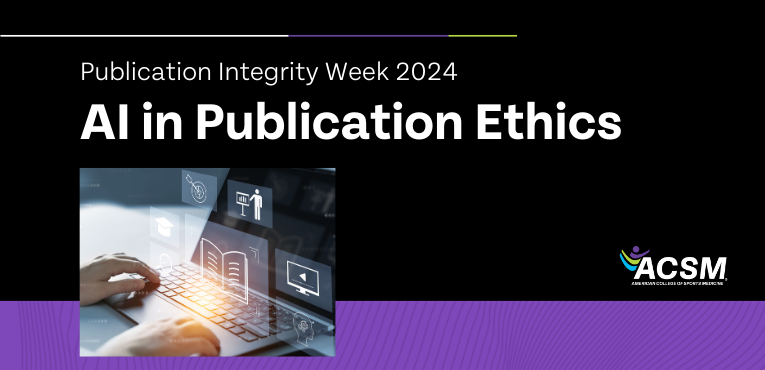
The future of publication ethics is likely to be significantly influenced by continued advances in artificial intelligence (AI) and the evolving landscape of the peer review process. These developments could bring both opportunities and challenges in ensuring the integrity, transparency, and quality of scientific publishing. The following are several key areas where AI and peer review intersect, and how they may shape the future of publication ethics:
AI in the Peer Review Process
AI could be used to enhance the initial screening of manuscripts. For example, AI tools could quickly detect potential issues such as plagiarism, statistical errors, or methodological flaws before the paper enters the peer review process. This would ensure that only high-quality manuscripts proceed to human review, improving the overall efficiency of the editorial workflow.
AI can help editors select the most appropriate reviewers based on their expertise publications. By using algorithms to match submissions with reviewers who have the right qualifications and no conflicts of interest, AI could streamline the review process and ensure that manuscripts are reviewed by experts in the field.
AI can be employed to detect biases in peer review, such as gender, institutional, or geographical. By analyzing past review patterns, AI could identify instances where reviewers may have unfairly rated certain manuscripts based on unrelated factors, and this information could be used to improve the objectivity of the review process.
AI-Generated Content and Authorship
As AI tools become more advanced, they could potentially assist in writing or even generate entire research papers. While these papers may be technically correct, they might lack originality or fail to reflect the author's intellectual input. Journals will need to develop methods to detect AI-generated content and determine whether it meets the ethical standards for authorship.
Questions may arise regarding the ethical implications of AI involvement in research authorship. If an AI tool contributes significantly to the content, who should be credited as an author? Should AI tools be acknowledged separately as contributors, or is this a form of "ghost authorship" that misrepresents the nature of intellectual labor in research?
Authors and journals will need clear guidelines about disclosing the use of AI in the research process. Ethical publication practices will require transparency about how AI was used in writing, data analysis, or interpretation to avoid misleading readers and maintaining the integrity of the research process.
AI in Data Integrity and Research Verification
AI algorithms can be used to assist in verifying research data, detecting anomalies, inconsistencies, or fraudulent manipulation of data. AI-powered tools could scan datasets for errors, helping to ensure that research findings are valid and reproducible. This could prevent the publication of fraudulent or misleading research.
AI could help improve the transparency and reproducibility of research by automating the process of checking whether results can be replicated based on shared data and methods. This would significantly improve the reliability of scientific literature.
The use of AI tools to analyze and verify data may raise privacy concerns, especially in fields like medical research where patient data is involved. Ensuring that AI tools respect data privacy and confidentiality will be crucial in maintaining ethical standards.
AI and Publication Ethics Governance
AI tools could assist journal editors and editorial staff in monitoring compliance with publication ethics, such as adherence to the Committee on Publication Ethics (COPE) guidelines. AI could automatically identify instances where ethical standards are at risk or where conflicts of interest may not have been disclosed.
As AI continues to shape the publishing landscape, there will likely be a need for more global standards for publication ethics. AI can facilitate the creation of these standards by analyzing trends in publishing practices and providing data-driven insights to guide policy-making at the journal level.
AI models trained on data from predominantly Western research environments may inadvertently reflect biases that marginalize non-Western scholars and research perspectives. To ensure equity and fairness, AI tools must be designed to account for diverse global contexts, and ethical guidelines should be developed with inclusivity in mind.
Enhancing Author and Reviewer Education
AI tools could help educate authors and reviewers about publication ethics, helping them understand issues such as conflict of interest, research misconduct, peer review etiquette, and proper citation. This could improve the quality and integrity of the review process.
AI has the potential to reduce human bias in the review process, but it can also perpetuate or even amplify existing biases if the underlying data and algorithms are not carefully managed. It's important that AI tools used in publishing are continuously updated to reflect diverse, unbiased perspectives.
Conclusion
As AI continues to transform the publication landscape, it offers great promise for improving efficiency, transparency, and integrity in scientific publishing. However, this transformation also brings with it new ethical challenges that must be carefully managed. Editors, editorial boards, publishers, and researchers will need to collaborate to ensure that AI tools are used responsibly, with appropriate safeguards in place to protect the authenticity of scientific research, uphold the quality of peer review, and ensure the fair treatment of all authors and reviewers.
The future of publication ethics will be a delicate balance between leveraging AI to improve workflows and ensuring human oversight to preserve the integrity of the scientific process. Ethical governance will need to evolve in tandem with these technological advancements, ensuring that AI enhances and does not undermine the ethical principles that are the foundation of scientific publishing.
Jeffrey Potteiger, PhD, FACSM, serves as interim dean of the College of Health Professions at Grand Valley State University. He has served a number of roles supporting ACSM publications, including book author, on the editorial boards for several journals, as well as past chair of the ACSM Publications Committee. Dr. Potteiger currently serves as the Scientific Integrity Editor on the editorial board of Medicine & Science in Sports & Exercise®.